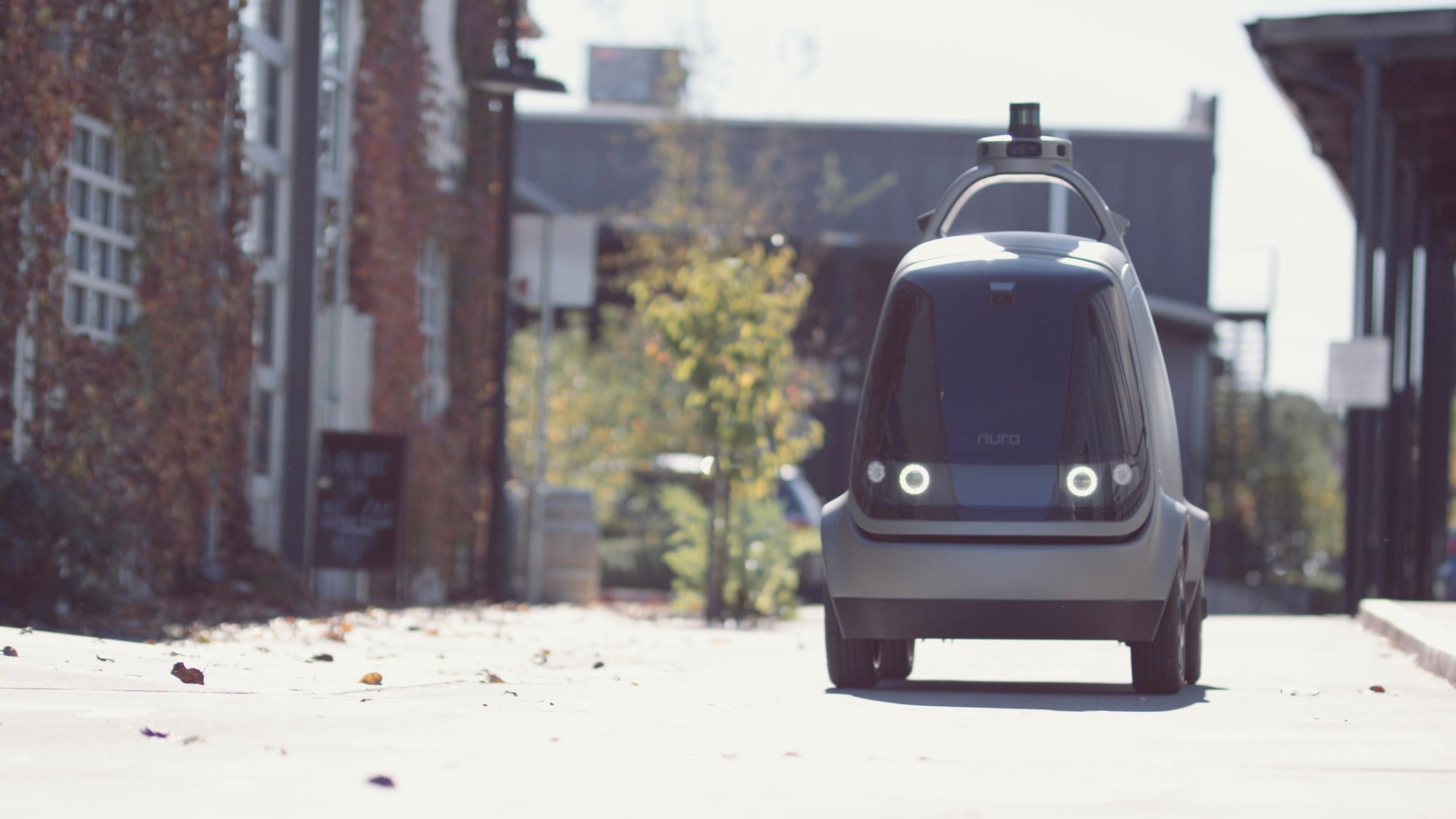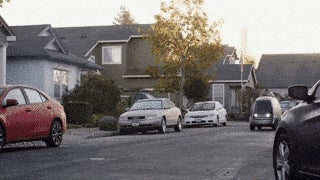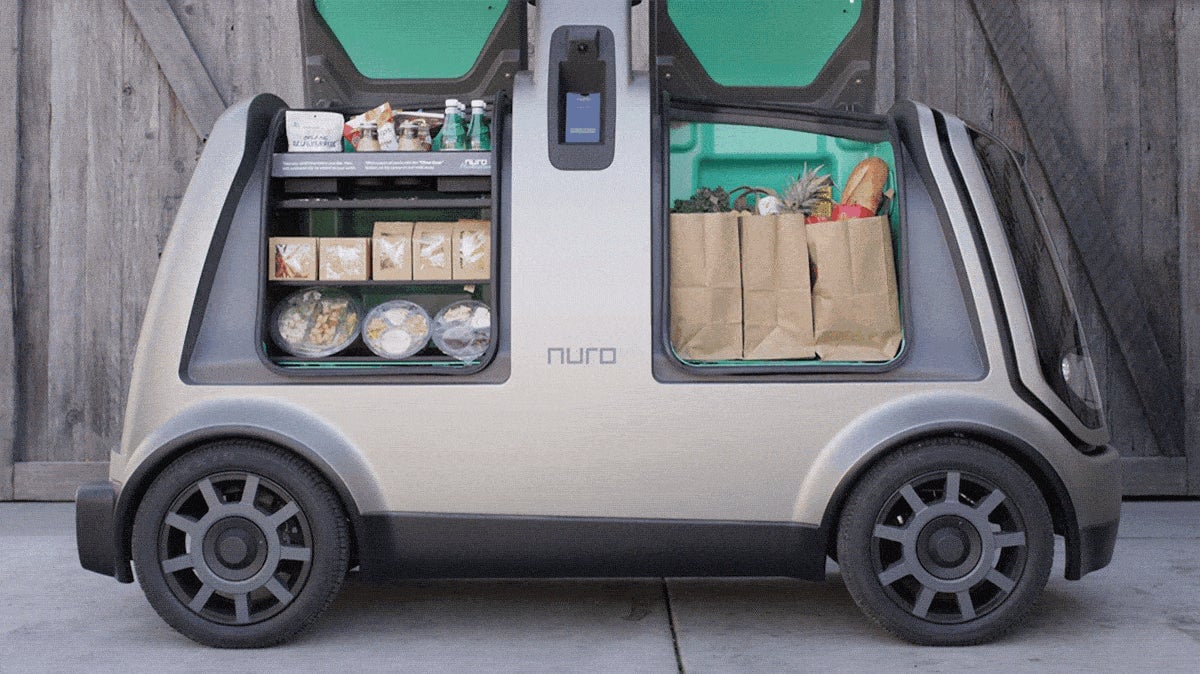The robots are coming—to deliver your dinner, or maybe a nice bouquet of flowers
We’re getting closer to a future where whatever you want, whenever you want it, could be the push of a button away. Want some new flowers for the living room table? Don’t feel like picking up the week’s groceries? Saw a nice guitar on Craigslist, but don’t want to travel to the other side of town to get it? Robot delivery vehicles are coming to help.


We’re getting closer to a future where whatever you want, whenever you want it, could be the push of a button away. Want some new flowers for the living room table? Don’t feel like picking up the week’s groceries? Saw a nice guitar on Craigslist, but don’t want to travel to the other side of town to get it? Robot delivery vehicles are coming to help.
Nuro, a two-year-old startup that emerged from stealth today (Jan. 30), announced that it has secured $92 million in funding to build small, autonomous delivery trucks. The company’s funding was led by venture-capital firms including Greylock Partners and Banyan Capital.
The company’s co-founders, Jiajun Zhu and Dave Ferguson, worked for several years on Google’s self-driving car research, before it was spun out into its own company, Waymo. Ferguson, who also worked on Carnegie Mellon University’s entrant into the original DARPA Grand Challenge, which kicked off much of the world’s the autonomous-vehicle research, told Quartz that he wanted to focus on building out self-driving vehicles for something other than moving people around, which Waymo and others are pursuing.
The two decided upon making it easier to move cargo around in small areas. Right now, it’s pretty easy to fly a package across the US, but once it’s offloaded at the airport, taken to a distribution facility, put on a truck for delivery, sits in traffic, and eventually arrives at its destination, far more time could’ve passed than it took to fly the thing thousands of miles. Niro’s autonomous vehicles can help manage package delivery (as its electric vehicles can run whenever they’re needed), or offer new delivery options to businesses.

Ferguson said bringing something like Nuro to life is a little easier than full self-driving cars. Nuro’s vehicles are about half as wide and as deep as a sedan car. They’re also only meant to travel on local roads, not highways, meaning it’ll never have to process what it’s seeing at particularly high speeds. They can ride in the middle of a lane, away from the curb, meaning that even if someone stepped into the street right in front of one, the result wouldn’t be like a Black Mirror episode, as the vehicle would still be a few feet away, in the middle of the lane. Nuro put a black windshield on the front of its vehicle so it looks more like a traditional vehicle, and people will be able to easily tell which direction it’s heading.
The team has built a prototype vehicle that’s bopping around towns in the Bay Area (Nuro has a license to test its contraptions on Californian roads). Each vehicle it builds will have two compartments for storing items equivalent to about 10 large shopping bags, with a total payload of around 250 pounds. The vehicles will have a touchpad that customers can use to unlock the compartment, and vehicles can be remotely controlled.

Nuro also wants to provide services for companies that might not have otherwise been able to offer delivery. Local greengrocers, florists, or hardware stores, which wouldn’t usually provide a delivery option, could rent space in a Nuro vehicle and send their goods to customers. Ferguson said the company is considering renting out a vehicle’s compartment for use as a mobile store—like a Bodega on wheels.
Ferguson said the company hasn’t figured out its business model yet. Nuro may rent out space, or charge per delivery, or offer a subscription model, but it will likely always manage its fleet of robots, whatever model it ends up going with. The goal for the year is to turn its prototype into a scalable product. By the end of the year, the company plans to have vehicles in service somewhere in the US. Ferguson said the company is having conversations with companies about partnerships, but didn’t have anything to share.
Nuro is one of many companies trying to automate the delivery process. Amazon, UPS, and myriad startups are working to turn autonomous delivery drones into a reality. But they face regulatory hurdles, as well as some technical challenges. Others, like Starship and Marble, want our sidewalks to become highways for smaller delivery robots, but they’re facing backlash from the communities whose streets they’re clogging. Others, like Elroy Air, want to automate larger-scale deliveries between cities. Ferguson said all the options can work together: Nuro will be able to deliver more than a small Starship robot, for example, but would probably be slower because it’s obeying traffic laws. And a drone might be able to fly to places that no land-based robot could reach.